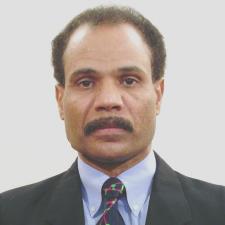
Who is the Pharaoh of the exodus?
Prophet Moses guided the Jewish people out of Egypt. The Pharaoh chased them to the Red Sea area and followed them through the open water of the sea. While Prophet Moses and the Jewish people crossed safely to the east shore of the Red Sea, the Pharaoh and his soldiers drown in the Red Sea water.
Who is this Pharaoh?
2 Answers By Expert Tutors

Cameron B. answered • 01/13/21
Instructor of History, Religion, and Classics
I want to answer your question, but first, I need to correct something. In Exodus 14, no where in the text does Pharaoh enter into the Red Sea. Verse 28 states the "hosts of Pharaoh" but no where does the Author explicitly state that Pharaoh was "drowned" in the Red Sea. In fact, there are several other textual/historical reasons for why this is not the case.
But to answer your question, Kenneth Kitchen in On the Reliability of The Old Testament provides several convincing arguments as to why, Rameses in Exodus could be identified with Rameses II of the Twelfth & Thirteenth Centuries. He notes that in several passages Egypt is referred to as the "Land of Rameses" (Gen. 47:6,11), that slaves built store cities for Rameses (Ex. 1:11), and the Israelites journeyed from a place called "Rameses" which is then contrasted with other places (Ex. 12:37 ; cf. Num. 33:3,5). This is significant because the Rameses of the OT is identified as a builder of cities and a ruler of a vast city. There were eleven Pharaohs named Rameses and only two built cities. Only one of these built a city which he named after himself and only one was Pharaoh at a time in close proximity to the drafting of the Pentateuch (First Five Books of the OT). Some scholars have erroneously suggested that a city named Tanis was called Pi-Rameses, but this has been debunked by several scholars.
The Second major argument is the cult of Rameses II which circulated for several centuries. It is very clear from archeological evidence that the city Rameses which Rameses II built had religious significance. In Exodus, YWHW repeatedly remarks, "they/he shall know I am the Lord." It is clear through the plagues, which challenged the gods of Egypt, and the very challenge of the "arm of YWHW" towards the "arm of Pharaoh," was a religious challenge. It makes little sense with other Rameses who held little cultic/religious significance to be identified as the Pharaoh in Exodus.
There are several more arguments, if you are interested, I would recommend reading the book, specifically pgs. 255-56, in which he specifically discusses Rameses II. This all of course assumes the reliability of the OT account. But your question does not focus on that topic, only which Pharaoh of Egypt was more than likely the Pharaoh identified in Exodus.
Raymond B. answered • 01/08/21
Math, microeconomics or criminal justice
Ramses II seems to be the major belief as to the Exodus Pharoah

Fawzy S.
No. The forensic investigations of the mummy of Rameses II by Dr. Maurice Bucaille revealed that Rameses II did not drown in the Read Sea water. Reference: The Bible, The Quran and Science by Maurice Bucaille, 2nd U. S. Edition 201401/08/21
Still looking for help? Get the right answer, fast.
Get a free answer to a quick problem.
Most questions answered within 4 hours.
OR
Choose an expert and meet online. No packages or subscriptions, pay only for the time you need.





Fawzy S.
Reference: The Bible, The Quran, and Science by Maurice Bucaille. Pages 237 – 256, 2014 Biblical textual references: The Pharaoh died while Moses was in Midian Exodus 2:23 KJV - https://www.biblestudytools.com/kjv/exodus/2-23.html And it came to pass in process of time, that the king of Egypt died: and the children of Israel sighed by reason of the bondage, and they cried, and their cry came up unto God by reason of the bondage. Exodus 4:21 KJV - https://www.biblestudytools.com/kjv/exodus/4-21.html And the LORD said unto Moses, When thou goest to return into Egypt, see that thou do all those wonders before Pharaoh, which I have put in thine hand: but I will harden his heart, that he shall not let the people go. The Pharaoh and his soldiers chase the children of Israel in Red Sea open water The children of Israel cross the Red Sea dry ground [Exodus 14:22 KJV], while the Pharaoh and his soldiers vanish in the red sea water [Exodus 14:26 KJV; Exodus 14:27 KJV]. Exodus 14:21 KJV - https://www.biblestudytools.com/kjv/exodus/14-21.html And Moses stretched out his hand over the sea; and the LORD caused the sea to go back by a strong east wind all that night, and made the sea dry land, and the waters were divided. Exodus 14:22 KJV - https://www.biblestudytools.com/kjv/exodus/14-22.html And the children of Israel went into the midst of the sea upon the dry ground: and the waters were a wall unto them on their right hand, and on their left. Exodus 14:23 KJV - https://www.biblestudytools.com/kjv/exodus/14-23.html And the Egyptians pursued, and went in after them to the midst of the sea, even all Pharaoh's horses, his chariots, and his horsemen. Exodus 14:24 KJV - https://www.biblestudytools.com/kjv/exodus/14-24.html And it came to pass, that in the morning watch the LORD looked unto the host of the Egyptians through the pillar of fire and of the cloud, and troubled the host of the Egyptians, Exodus 14:25 KJV - https://www.biblestudytools.com/kjv/exodus/14-25.html And took off their chariot wheels, that they drave them heavily: so that the Egyptians said, Let us flee from the face of Israel; for the LORD fighteth for them against the Egyptians. Exodus 14:26 KJV - https://www.biblestudytools.com/kjv/exodus/14-26.html And the LORD said unto Moses, Stretch out thine hand over the sea, that the waters may come again upon the Egyptians, upon their chariots, and upon their horsemen. Exodus 14:27 KJV - https://www.biblestudytools.com/kjv/exodus/14-27.html And Moses stretched forth his hand over the sea, and the sea returned to his strength when the morning appeared; and the Egyptians fled against it; and the LORD overthrew the Egyptians in the midst of the sea.01/14/21